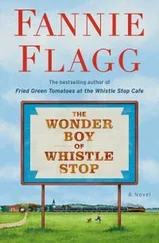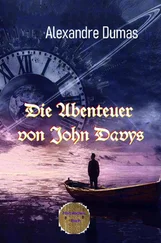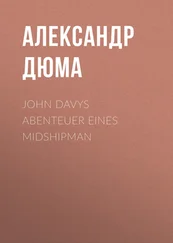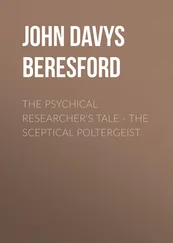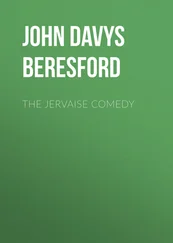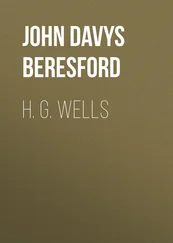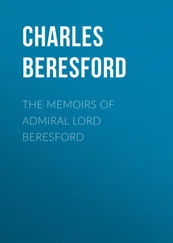John Davys Beresford - The Wonder
Здесь есть возможность читать онлайн «John Davys Beresford - The Wonder» — ознакомительный отрывок электронной книги совершенно бесплатно, а после прочтения отрывка купить полную версию. В некоторых случаях можно слушать аудио, скачать через торрент в формате fb2 и присутствует краткое содержание. Жанр: foreign_prose, foreign_antique, на английском языке. Описание произведения, (предисловие) а так же отзывы посетителей доступны на портале библиотеки ЛибКат.
- Название:The Wonder
- Автор:
- Жанр:
- Год:неизвестен
- ISBN:нет данных
- Рейтинг книги:3 / 5. Голосов: 1
-
Избранное:Добавить в избранное
- Отзывы:
-
Ваша оценка:
- 60
- 1
- 2
- 3
- 4
- 5
The Wonder: краткое содержание, описание и аннотация
Предлагаем к чтению аннотацию, описание, краткое содержание или предисловие (зависит от того, что написал сам автор книги «The Wonder»). Если вы не нашли необходимую информацию о книге — напишите в комментариях, мы постараемся отыскать её.
The Wonder — читать онлайн ознакомительный отрывок
Ниже представлен текст книги, разбитый по страницам. Система сохранения места последней прочитанной страницы, позволяет с удобством читать онлайн бесплатно книгу «The Wonder», без необходимости каждый раз заново искать на чём Вы остановились. Поставьте закладку, и сможете в любой момент перейти на страницу, на которой закончили чтение.
Интервал:
Закладка:
"It's early days yet," I ventured, intending encouragement, but Stott frowned and shook his head.
"I'm not going to kid myself," he said, "I know. But I'm going to find a youngster and learn 'im. On'y he must be young.
"No 'abits, you know," he explained.
The next time I met Stott was in November. I ran up against him, literally, one Friday afternoon in Ailesworth.
When he recognised me he asked me if I would care to walk out to Stoke-Underhill with him. "I've took a cottage there," he explained, "I'm to be married in a fortnight's time."
His circumstances certainly warranted such a venture. The proceeds of matinée and benefit, invested for him by the Committee of the County Club, produced an income of nearly two pounds a week, and in addition to this he had his salary as groundsman. I tendered my congratulations.
"Oh! well, as to that, better wait a bit," said Stott.
He walked with his hands in his pockets and his eyes on the ground. He had the air of a man brooding over some project.
"It is a lottery, of course …" I began, but he interrupted me.
"Oh that!" he said, and kicked a stone into the ditch; "take my chances of that. It's the kid I'm thinking on."
"The kid?" I repeated, doubtful whether he spoke of his fiancée, or whether his nuptials pointed an act of reparation.
"What, else 'ud I tie myself up for?" asked Stott. "I must 'ave a kid of my own and learn 'im from his cradle. It's come to that."
"Oh! I understand," I said; "teach him to bowl."
"Ah!" replied Stott as an affirmative. "Learn 'im from his cradle; before 'e's got 'abits. When I started I'd never bowled a ball in my life, and by good luck I started right. But I can't find another kid over seven years old in England as ain't never bowled a ball o' some sort and started 'abits. I've tried …"
"And you hope with your own boys…?" I said.
"Not 'ope, it's a cert," said Stott. "I'll see no boy of mine touches a ball afore he's fourteen, and then 'e'll learn from me; and learn right. From the first go off." He was silent for a few seconds, and then he broke out in a kind of ecstasy. "My Gawd, 'e'll be a bowler such as 'as never been, never in this world. He'll start where I left orf. He'll …" Words failed him, he fell back on the expletive he had used, repeating it with an awed fervour. "My Gawd!"
I had never seen Stott in this mood before. It was a revelation to me of the latent potentialities of the man, the remarkable depth and quality of his ambitions....
VIII
I intended to be present at Stott's wedding, but I was not in England when it took place; indeed, for the next two years and a half I was never in England for more than a few days at a time. I sent him a wedding-present, an inkstand in the guise of a cricket ball, with a pen-rack that was built of little silver wickets. They were still advertised that Christmas as "Stott inkstands."
Two years and a half of American life broke up many of my old habits of thought. When I first returned to London I found that the cricket news no longer held the same interest for me, and this may account for the fact that I did not trouble for some time to look up my old friend Stott.
In July, however, affairs took me to Ailesworth, and the associations of the place naturally led me to wonder how Stott's marriage had turned out, and whether the much-desired son had been born to him. When my business in Ailesworth was done, I decided to walk out to Stoke-Underhill.
The road passes the County Ground, and a match was in progress, but I walked by without stopping. I was wool-gathering. I was not thinking of the man I was going to see, or I should have turned in at the County Ground, where he would inevitably have been found. Instead, I was thinking of the abnormal child I had seen in the train that day; uselessly speculating and wondering.
When I reached Stoke-Underhill I found the cottage which Stott had shown me. I had by then so far recovered my wits as to know that I should not find Stott himself there, but from the look of the cottage I judged that it was untenanted, so I made inquiries at the post-office.
"No; he don't live here, now, sir," said the postmistress; "he lives at Pym, now, sir, and rides into Ailesworth on his bike." She was evidently about to furnish me with other particulars, but I did not care to hear them. I was moody and distrait. I was wondering why I should bother my head about so insignificant a person as this Stott.
"You'll be sure to find Mr. Stott at the cricket ground," the postmistress called after me.
Another two months of English life induced a return to my old habits of thought. I found myself reverting to old tastes and interests. The reversion was a pleasant one. In the States I had been forced out of my groove, compelled to work, to strive, to think desperately if I would maintain any standing among my contemporaries. But when the perpetual stimulus was removed, I soon fell back to the less strenuous methods of my own country. I had time, once more, for the calm reflection that is so unlike the urgent, forced, inventive thought of the American journalist. I was braced by that thirty months' experience, perhaps hardened a little, but by September my American life was fading into the background; I had begun to take an interest in cricket again.
With the revival of my old interests, revived also my curiosity as to Ginger Stott, and one Sunday in late September I decided to go down to Pym.
It was a perfect day, and I thoroughly enjoyed my four-mile walk from Great Hittenden Station.
Pym is a tiny hamlet made up of three farms and a dozen scattered cottages. Perched on one of the highest summits of the Hampden Hills and lost in the thick cover of beech woods, without a post-office or a shop, Pym is the most perfectly isolated village within a reasonable distance of London. As I sauntered up the mile-long lane that climbs the steep hill, and is the only connection between Pym and anything approaching a decent road, I thought that this was the place to which I should like to retire for a year, in order to write the book I had so often contemplated, and never found time to begin. This, I reflected, was a place of peace, of freedom from all distraction, the place for calm, contemplative meditation.
I met no one in the lane, and there was no sign of life when I reached what I must call the village, though the word conveys a wrong idea, for there is no street, merely a cottage here and there, dropped haphazard, and situated without regard to its aspect. These cottages lie all on one's left hand; to the right a stretch of grass soon merges into bracken and bush, and then the beech woods enclose both, and surge down into the valley and rise up again beyond, a great wave of green; as I saw it then, not yet touched with the first flame of autumn.
I inquired at the first cottage and received my direction to Stott's dwelling. It lay up a little lane, the further of two cottages joined together.
The door stood open, and after a moment's hesitation and a light knock, I peered in.
Sitting in a rocking-chair was a woman with black, untidy eyebrows, and on her knee, held with rigid attention, was the remarkable baby I had seen in the train two months before. As I stood, doubtful and, I will confess it, intimidated, suddenly cold and nervous, the child opened his eyes and honoured me with a cold stare. Then he nodded, a reflective, recognisable nod.
"'E remembers seein' you in the train, sir," said the woman, "'e never forgets any one. Did you want to see my 'usband? 'E's upstairs."
So this was the boy who was designed by Stott to become the greatest bowler the world had ever seen....
FOOTNOTES:
CHAPTER III
THE DISILLUSIONMENT OF GINGER STOTT
I
Интервал:
Закладка:
Похожие книги на «The Wonder»
Представляем Вашему вниманию похожие книги на «The Wonder» списком для выбора. Мы отобрали схожую по названию и смыслу литературу в надежде предоставить читателям больше вариантов отыскать новые, интересные, ещё непрочитанные произведения.
Обсуждение, отзывы о книге «The Wonder» и просто собственные мнения читателей. Оставьте ваши комментарии, напишите, что Вы думаете о произведении, его смысле или главных героях. Укажите что конкретно понравилось, а что нет, и почему Вы так считаете.

